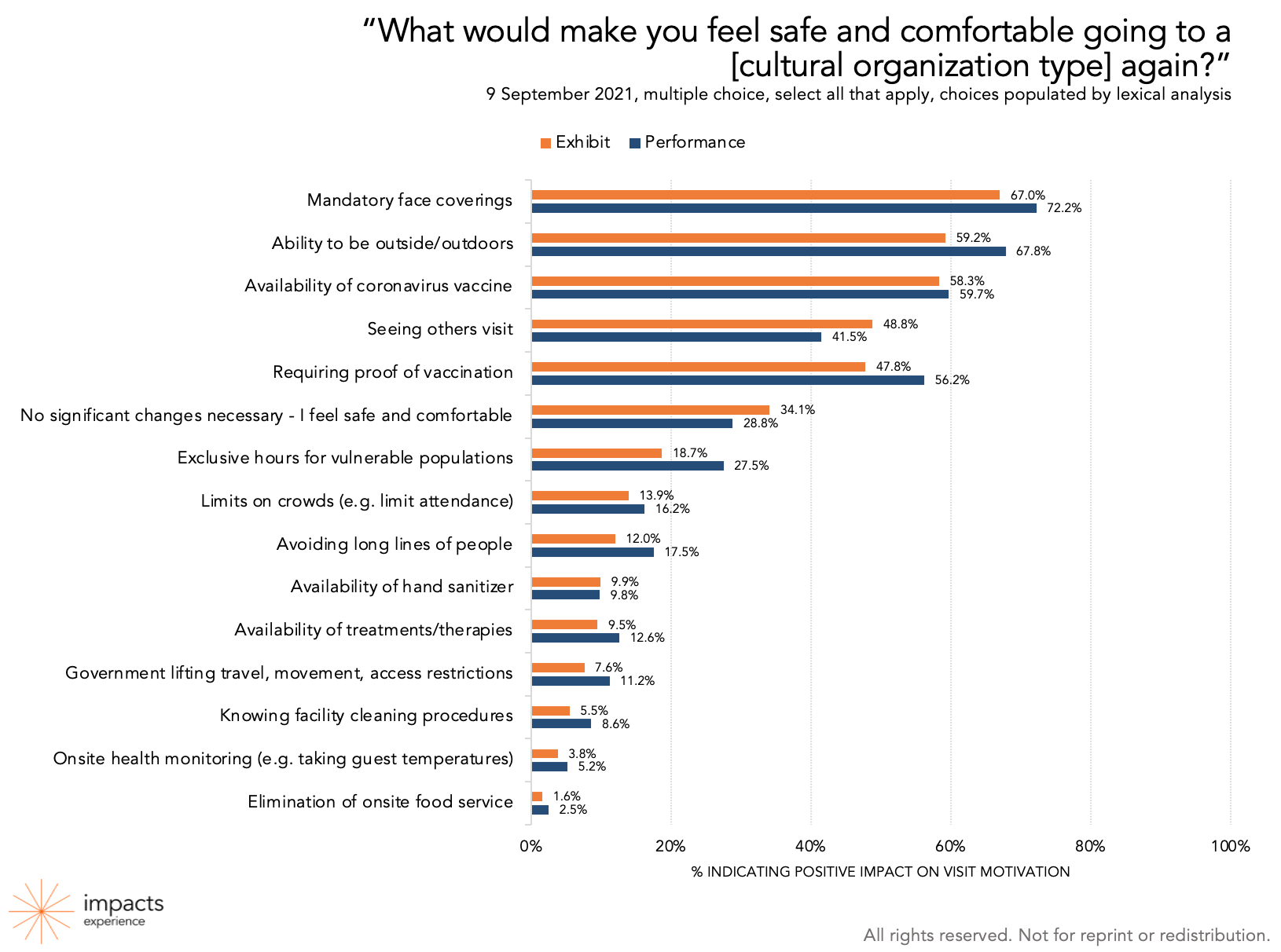Community, Leadership, Experimentation, Diversity, & Education
Pittsburgh Arts, Regional Theatre, New Work, Producing, Copyright, Labor Unions,
New Products, Coping Skills, J-O-Bs...
Theatre industry news, University & School of Drama Announcements, plus occasional course support for
Carnegie Mellon School of Drama Faculty, Staff, Students, and Alumni.
CMU School of Drama
Wednesday, September 22, 2021
Should Cultural Entities Require Proof of Vaccination? (DATA)
Colleen Dilenschneider: Proof of vaccination requirements are becoming increasingly common around the world. They are required to enter certain countries, attend museums and hotels in Europe, go into state facilities in Maui, attend a Buffalo Bills NFL game, enter some hospitals, and we’re even seeing them mandated to eat indoors in places like New York City and several cities in California, for instance. In sum, we’re hearing and seeing a lot recently about proof of vaccination requirements.
Subscribe to:
Post Comments (Atom)

4 comments:
I am surprised that people are saying “not yet” to requiring proof of vaccination at cultural entities. With the Covid-19 vaccine being available for over a year now, how long will it take for these entities to require vaccinations? I understand why they might not want to require proof of vaccination due to wanting to make up as much lost revenue from 2020 as possible, although I disagree with how long these entities are waiting to do it. More entities requiring proof would encourage people to get vaccinated, as unvaccinated people would be more restricted in their leisure activities and be more motivated to get the vaccine. It makes a lot of sense to me that households with children under 13 are much more likely to only want to be around vaccinated people; I know from friends and family that teach young children that Covid-19 is still a huge issue, and kids are constantly getting sick.
I also think it is really interesting that people are saying “not yet”. Since the vaccine is so available now and people aren’t having a hard time finding it like in March or April, it would make sense if people wanted companies to require it. Even looking at the chat this article provides about what would make people more comfortable in these organizations, requiring proof of vaccine was the fifth most popular answer out of the fifteen answers. Yet it seems the measures organizations that aren’t requiring the vaccine are taking are like providing hand sanitizer, limits on crowds, eliminating food, and telling people the cleaning routine of the place. But all of these things are at the bottom of this list of what would make people comfortable. Two of the top things that would make people comfortable are requiring face masks and requiring vaccines. These should be the measures that these companies are focusing on.
I’m taking this analysis with a very large grain of salt. The author seems to be trying to stay as neutral as possible, but in a situation such as Coronavirus, where people will die if we mess around with regulation, this article tells us what the public thinks and not what is actually safe. I understand taking survey of this issue to find out where the public opinion lies, but I don’t agree with the conclusion “the data suggests that the answer is “not yet…but maybe soon.”” When is soon? When people are dying in the hospital for a virus that can be mitigated with a vaccine? When the workers, both onstage and backstage, die because of exposure from an unvaccinated audience member even though the worker was vaccinated? This article is misleading because they aren’t willing to take a stance in the face of public safety and health. This issue isn’t up for debate, keep the masks on and require the vaccine to protect our cultural heritage for generations to come. Don’t let our children look back on us in shame.
Part of why I opened this article was to find out what they were actually referring to as ‘cultural entities’, and when I saw they meant institutions like museums and theaters, I went ‘yes, obviously’. I think the data here is useful to see what people are looking for to consider something safe again, although I also think that institutions should be doing their best to conform with what is actually the safest rather than what people want to see. I do also understand though that to be back in business at all, compromises do have to be made. Personally, at the summer stock I worked at, while there was not a vaccine requirement we did achieve 100% vaccination among everyone living on site, and it was so comfortable to know that I could just trust everyone around me and relax for the first time in a while, and to be able to live and work with much fewer restrictions. I think that feeling transfers to events and venues as well - I would love vaccine mandates just so I know I can trust the people around me. Of course it’s not that easy, and requires work to set up a verification process, but personally I would love it, and reject the idea of ‘not yet’ - if not now, when?
Post a Comment